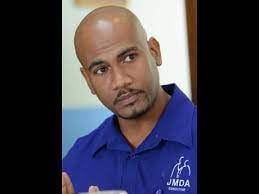Jamaica’s ranks among the top ten most culturally influential countries in the world behind the likes of China and Brazil and certainly ahead of the United States of America. Our music, dance, Jamaican Art, and other social expressions are the primary drivers of the island’s culture, albeit without serious economic and social support from government and other social interests at home.
While the country grapples with productivity issues, such as
its inability to find competitive space for manufactured goods in the various
export markets, it has failed to realize a largely untapped creative industry
which requires very little import content yet having the ability to contribute
exponentially to the island’s earning capacity via marketing intellectual
property. It may come as a surprise to many that Art is in fact an export
industry and in 2019 its global value was estimated at $50.1 billion in 2020
with online sales accounting for $12.6 billion. The USA accounts for 40.2
percent of those sales with China and Great Britain each accounting for 20
percent of those sales.
From a business development standpoint, Jamaica’s proximity to the USA makes
this a “low-hanging fruit” especially given its ever increasing Diaspora
population. The task is in getting Jamaicans in the Diaspora to understand the
importance in supporting Jamaican artists by purchasing their work.
Jamaica established the National Cultural Training Centre in
1975/76 which was later renamed the Edna Manley Centre for the Visual and
Performing Arts with a vision of broadening the opportunities for artisans and
craftsmen and to strengthen the island’s cultural output. To make all this work
though, we need to support the work of the island’s creative people. We all
need to buy the works of our local artists. Whether you start with original art pieces or giclee prints on canvas, it represents a start. Find an artist or group of artists
whose work appeals to you. Talk with them where possible...go to their shows.
Most will work out payment arrangements with you to help make it easier to
acquire their work. As an artist myself, I certainly do.
For my part I am now offering Jamaican art that I have purchased directly from artists in
Jamaica for resale on my website at www.yardabraawd.com.
One such artist that I am currently working with is Richard Hall, whose work has seen significant demand growth. I have also been representing an intuitive ceramist Over time I will be adding more Jamaica-based artists, especially artists just leaving the Edna Manley College. I am convinced that by
purchasing the products and services of local artists, and artisans we all play a part in reflecting the authenticity of Jamaica’s culture and
hence drive tourist interest to the island and our people worldwide. More
families in Jamaica (with our support) will be better able to sustain themselves, while your patronage contributes to expanding the
economic landscape in Jamaica.













